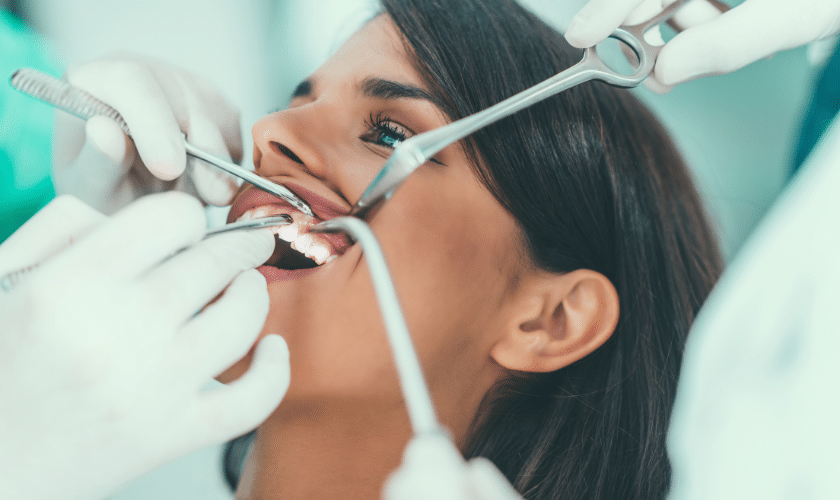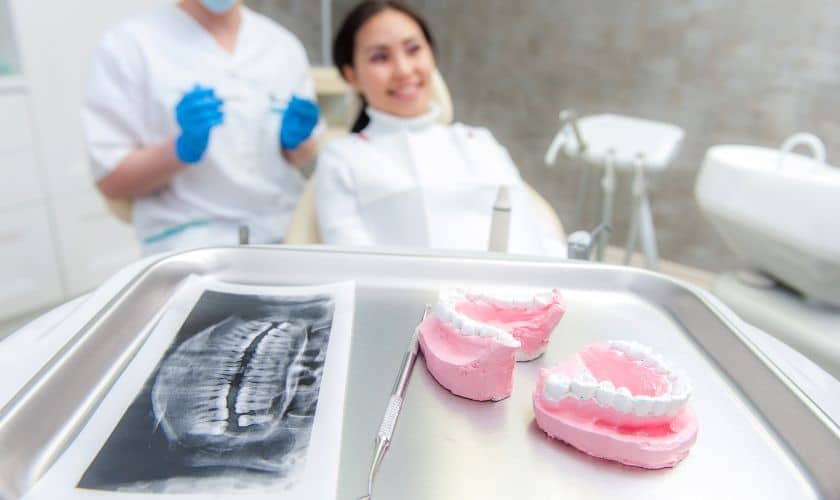
Pain-Free Progress: Dental Sedation Paves the Way to Healthy Smiles
Are you one of those who feel anxious just thinking about going to the dentist? You’re not alone. Many people experience dental anxiety, making it challenging to get the necessary dental care they need. Fortunately, there is a solution: dental sedation. Dental sedation helps patients relax and eases their fear during dental procedures. This blog post’ll explore dental sedation, how it works, and who can benefit from it. Keep reading for all the details on how pain-free progress paves the way to healthy smiles!
Dental sedation: what is it, and how does it work?
Dental sedation is medication to help patients relax and feel comfortable during dental procedures. It can be administered in different ways, including inhalation, oral sedation, or intravenous (IV) sedation.
Inhalation sedation involves breathing nitrous oxide and oxygen through a mask placed over the nose. Oral sedation comes in pill form and is taken before the procedure to reduce anxiety levels. IV sedation involves administering medication directly into a patient’s vein, offering the deepest relaxation possible during dental work.
The type of dental sedation used will depend on several factors, such as the patient’s medical history, age, anxiety level, and pain sensitivity. However, all types aim to reduce fear and discomfort associated with dental treatments while allowing full communication with your dentist.
It is essential to note that patients receiving dental anesthesia should have someone accompany them home after their appointment since they may experience drowsiness or lightheadedness for some time following treatment.
Dental Sedations are an excellent option for those who face difficulties visiting dentists due to their fears or anxieties because it ensures that they receive necessary care without experiencing any distressing sensations.
The benefits of dental sedation
Dental sedation has many benefits that can help patients achieve better oral health and overcome their fear of dental procedures. One of the most significant advantages is that dentists can perform more extensive treatments in a single visit, reducing the number of appointments required.
Another benefit is that dental sedation can help patients relax during their treatment, particularly for those who suffer from anxiety or have had negative experiences with dental procedures. It also helps prevent involuntary movements and reduces gag reflexes, making it easier for dentists to work on sensitive areas without causing discomfort.
Dental sedation is safe and effective when administered by a qualified dentist or anesthesiologist. They will monitor your vital signs throughout the procedure to ensure that you are comfortable and relaxed while receiving treatment.
Dental sedation offers patients a pain-free experience that eases stress levels during any necessary procedure. Patients should talk to their dentist about whether they are good candidates for this option as each case might differ depending on factors such as age, medical history, type of procedure needed, among others.
Who is a good candidate for dental sedation?
Dental sedation is a safe and effective option for people who experience anxiety or fear when visiting the dentist. It can also benefit patients with special needs, medical conditions, or those undergoing lengthy dental procedures.
Children may also be good candidates for dental sedation as it can help them remain calm and still during their appointment. Sedation dentistry allows pediatric dentists to perform necessary treatments without causing emotional trauma to the child.
Patients with a strong gag reflex or jaw discomfort may also benefit from dental sedation. Sedatives can relax these muscles and make the procedure more comfortable for the patient.
Some individuals have difficulty getting numb using local anesthesia alone, making them good candidates for dental sedation. The use of conscious sedation combined with local anesthesia can help ensure patients are comfortable throughout their treatment.
It is important to note that not everyone requires dental sedation, but it is a valuable tool for those who do experience anxiety over visiting the dentist. A consultation with your dentist will help determine if you are a suitable candidate for this type of treatment.
How to choose a dentist for your dental sedation needs
Choosing the right dentist for your dental sedation needs ensures a safe and comfortable experience. Here are some tips on how to find the best dentist for you.
Firstly, consider their qualifications and experience in providing dental sedation. Look for dentists who have undergone additional training in sedation techniques and have successfully completed relevant courses or certifications.
Secondly, check their reputation by reading reviews or testimonials from previous patients. Positive feedback can give you an idea of what to expect during your visit.
Thirdly, evaluate their communication skills. A good dentist should be able to explain the procedure clearly, answer any questions you may have, and make you feel at ease before starting treatment.
Fourthly, assess the facilities they offer. Do they provide a relaxing environment with amenities such as music or television? Is their equipment up-to-date?
Consider location and accessibility. Choose a dentist whose office is conveniently located near your home or workplace so that you don’t have to travel far after undergoing dental sedation.
By considering these factors when choosing a dentist for your dental sedation needs, you’ll be well on your way towards achieving pain-free progress toward healthy teeth and gums!
What to expect during and after your dental sedation appointment
Before undergoing dental sedation, it is important to understand what you can expect during and after the procedure. The specifics of your appointment may vary depending on the type of sedation used and the nature of your dental work.
A qualified healthcare professional will administer medication during the appointment to help you relax or fall asleep. This medication may be given in various forms, such as pills, gas, or injections. Depending on the level of sedation needed for your case, you may still be aware of your surroundings but relaxed enough not to experience anxiety.
Afterward, it is common to feel groggy or disoriented due to the lingering effects of anesthesia. It’s recommended that patients have someone else drive them home from their appointment, as they should avoid driving or operating heavy machinery until fully alert again.
You might also experience some side effects like nausea and dizziness but don’t worry; these are normal reactions that usually only last a few hours after waking up from sleep induced by sedatives.
Understanding what happens during and after dental sedation can help alleviate any fears associated with this process. Remember to discuss all aspects with a trusted dentist before undergoing any form of treatment involving oral surgery so you know exactly what will happen at every stage!
The Bottom-line
Dental sedation can be a game-changer for those who suffer from anxiety or fear when visiting the dentist. It offers a pain-free solution to ensure patients receive the necessary dental care while remaining calm and relaxed.
With its many benefits, including increased comfort and reduced stress levels during appointments, dental sedation is an excellent option for anyone looking to improve their oral health. And with more dentists offering this service than ever, it’s now easier than ever to find a qualified provider to help you achieve your dental goals.
If you’re interested in exploring dental sedation further, we recommend speaking with your dentist about whether it would be right for you. With the right preparation and guidance from a trusted professional, there’s no reason why you can’t enjoy healthy teeth and gums without any added discomfort or anxiety.
Recent Posts

How Adhesive Techniques Have Improved Denture Fit

How Dentures Can Renew Mom’s Self-Assurance This Mother’s Day

TMJ Treatment: What to Expect During Your Dental Visit

How Stress Affects Gum Health And Strategies For Stress Management

